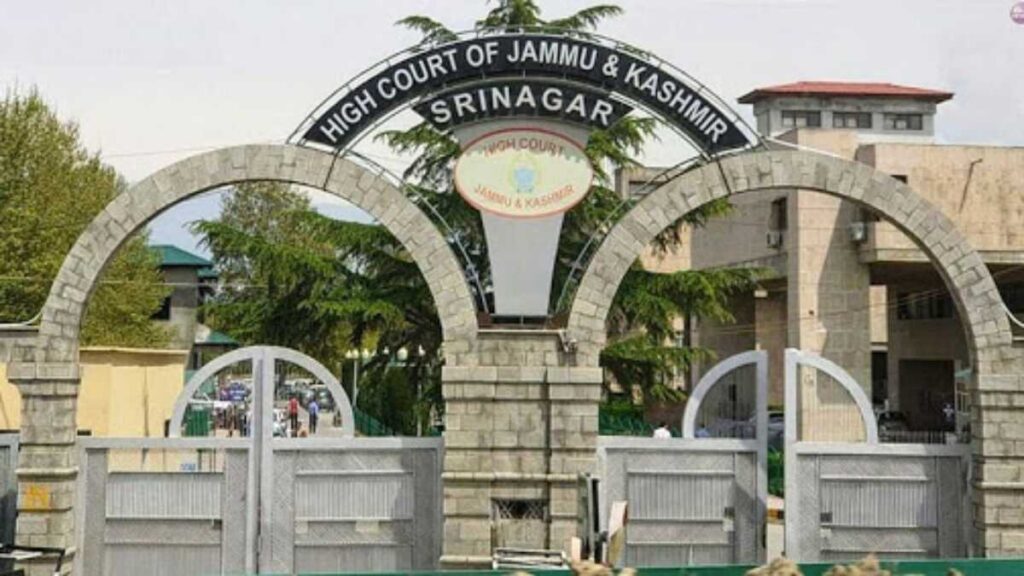Rakia Imran
A Division-Bench comprising Justice Sanjeev Kumar and Justice Puneet Gupta, observed that the SHRC’s compensation award of ₹1 lakh was issued without notice or a hearing for the accused, breaching natural justice, and set it aside. The Jammu and Kashmir High Court recently overturned a 2008 order issued by the erstwhile State Human Rights Commission (SHRC) in a case concerning custodial torture. The Court noted that the SHRC had proceeded without granting the accused police officers an opportunity to present their side of the story, leading to a violation of due process and the annulment of the order.
The case was, therefore, closed by the High Court after it had considered remanding the case back to the SHRC for a renewed adjudication, only to be informed that the SHRC no longer exists in Jammu and Kashmir following its reorganisation in 2019. The order passed last month also said, “We could have sent back the case to the Commission for fresh consideration after providing an opportunity of being heard to the petitioners but we are told that the State Human Rights Commission does not exist. It is because of this reason, we are inclined to close the matter”.
Hearing a plea against a 2008 SHRC order, the High Court examined the commission’s recommendation for a ₹1 lakh compensation to a man who claimed custodial torture at the hands of the Darhal Police Station SHO and other unnamed personnel.
The preliminary investigation uncovered that the man, represented by Advocate Garima Gupta, had been detained under Section 364 (kidnapping) of the Ranbir Penal Code (RPC) 1932, on the grounds of suspected militant links. During his time in custody, he underwent lengthy interrogation sessions designed to probe his alleged connections. The man also accused police officers of subjecting him to physical torture while in their custody.
In light of these findings, the inquiry officer suggested that a formal FIR be lodged to thoroughly investigate the allegations and uncover the complete truth.. Acting on this recommendation, authorities registered an FIR under Section 330 of the RPC, a provision concerning the infliction of harm for the purpose of extracting confessions. Following the investigation, the officer in charge concluded that the arrested man’s claims of custodial torture were unsubstantiated and submitted a closure report, effectively dismissing the allegations. Unhappy with this conclusion, the man approached the State Human Rights Commission (SHRC) once again, seeking justice. After conducting its own inquiry, the SHRC determined that the police officers in question were guilty of torturing the man in custody and recommended that he be compensated for the ordeal he had endured. This decision prompted the accused officers to challenge the SHRC’s findings through a writ petition filed in the High Court. Upon considering the submissions of both parties, the High Court ultimately ruled in favor of the petitioners and quashed the SHRC’s 2008 order.
Whereas, the government respondents in the case were, Senior Additional Advocate General Monika Kohli and Advocate Sugandh Sharma.
Case Name: Mohd Farooq Khan V/s State Human Rights Commission
Case Number: OWP No. 120/2008 IA No. 153/2008
Bench: Justices Sanjeev Kumar and Puneet Gupta

